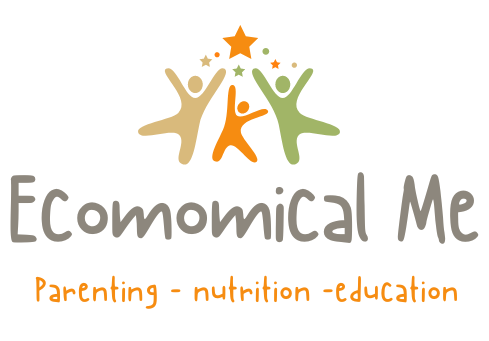Carbohydrates are an important component of a healthy diet, but not all carbohydrate sources are created equal. When trying to maintain a balanced diet and make sure you are getting the nutrition you need, it’s important to be aware of the different types of carbohydrates and which food sources contain them. In this article, we’ll explore the different types of carbohydrates, their nutritional makeup, and which food sources provide them so that you can make better choices for your health.
What Are Carbohydrates?
Carbohydrates are one of the three macronutrients (along with fat and protein) and are essential for a healthy diet. They are the body’s main source of energy and are found in a variety of foods, including bread, pasta, rice, fruits, vegetables, and more.
There are two types of carbohydrates: simple and complex. Simple carbs comprise single sugars (like glucose and fructose), while complex carbs comprise multiple sugars (like starches and fiber). Both types of carbs provide the body with energy, but complex carbs tend to be more nutrient-dense and can help with weight loss or management.
Healthy adults should consume 45-65% of their calories from carbohydrates each day. This can vary depending on age, activity level, and overall health.
The Different Types of Carbohydrate Food Sources
There are three main types of carbohydrate food sources: sugar, starch, and fiber.
Sugar
Sugar is a simple carbohydrate that is found in foods like candy, cookies, cake, and soda. It is also added to many processed foods like breakfast cereal and bread.
Starch
Starch is a complex carbohydrate that is found in foods like rice, pasta, potatoes, and corn. It is also found in beans and some vegetables like peas and carrots.
Fiber
Fiber is a complex carbohydrate that is found in plant-based foods like fruits, vegetables, whole grains, and legumes. It is not digested by the body but helps with bowel regularity and can aid in weight loss.
How to Choose the Right Carbohydrate Food Source
There are a few things to consider when selecting carbohydrate-rich foods: the type of carbohydrate, the glycemic index, and portion size.
- Type of Carbohydrate: There are two types of carbohydrates – simple and complex. Simple carbohydrates are made up of one or two sugar molecules and are found in foods like candy, cake, and soda. Complex carbohydrates are made up of three or more sugar molecules and include starchy vegetables like potatoes and corn, as well as whole grains like wheat bread and oatmeal.
- Glycemic Index: The glycemic index is a measure of how quickly a food raises your blood sugar levels. Foods with a high glycemic index (70 or above) will cause your blood sugar to rise quickly, while foods with a low glycemic index (55 or below) will have a slower, steadier effect on blood sugar levels.
- Portion Size: It’s important to control portion sizes when eating carbohydrate-rich foods, especially if you’re trying to lose weight or manage diabetes. A good rule of thumb is to fill half of your plate with non-starchy vegetables, one quarter with lean protein, and one-quarter with carbohydrate-rich food. For example, if you’re having baked chicken for dinner, you could round out the meal with roasted Brussels sprouts and sweet potato wedges.
The Benefits of Carbohydrates
Carbohydrates are an important part of a healthy diet and provide many essential nutrients. They are a good source of energy and can help you feel fuller for longer. They also play a role in helping to regulate blood sugar levels.
There are different types of carbohydrates, which are classified according to their structure. Simple carbohydrates are made up of single sugars, while complex carbohydrates are made up of multiple sugars. The main difference between the two is that complex carbohydrates take longer to digest, so they can help you feel fuller for longer.
There are many different food sources of carbohydrates, including:
- fruits
- vegetables
- grains
- legumes
- dairy products
It is recommended that you eat a variety of these foods to get the most benefit from them. Whole-grain pieces of bread and cereals, for example, contain all three types of carbohydrates: simple sugars, complex carbs, and fiber.
Fiber is an important type of carbohydrate that helps to keep you regular and can also help to lower cholesterol levels. Other good sources of complex carbs include oatmeal, brown rice, barley, and pasta. The benefits of carbohydrates include providing energy, regulating blood sugar levels, keeping you regular, and helping you to feel fuller for longer. So make sure to include them as part of a healthy diet!
The Drawbacks of Carbohydrates
There are a few potential drawbacks to carbohydrates, especially when they make up a large part of your diet. Here are a few things to consider:
- Blood sugar levels can spike after eating high-carb foods, which can be problematic for people with diabetes or other blood sugar disorders.
- Carbohydrates can also contribute to weight gain if you consume more calories than you burn.
- Some types of carbs, such as refined grains and sugars, can cause inflammation in the body and lead to health problems like heart disease and arthritis.
Finally, consuming too many carbs can lead to digestive issues like constipation and diarrhea.
We can see that there is a wide variety of carbohydrate food sources available and all of them have their unique benefits. Whether you are looking for energy or just want to stay full for longer, there is sure to be a carbohydrate food source suitable for your needs. No matter how you decide to incorporate carbohydrates into your diet, make sure you research each type thoroughly so that you know exactly what it offers your body.

